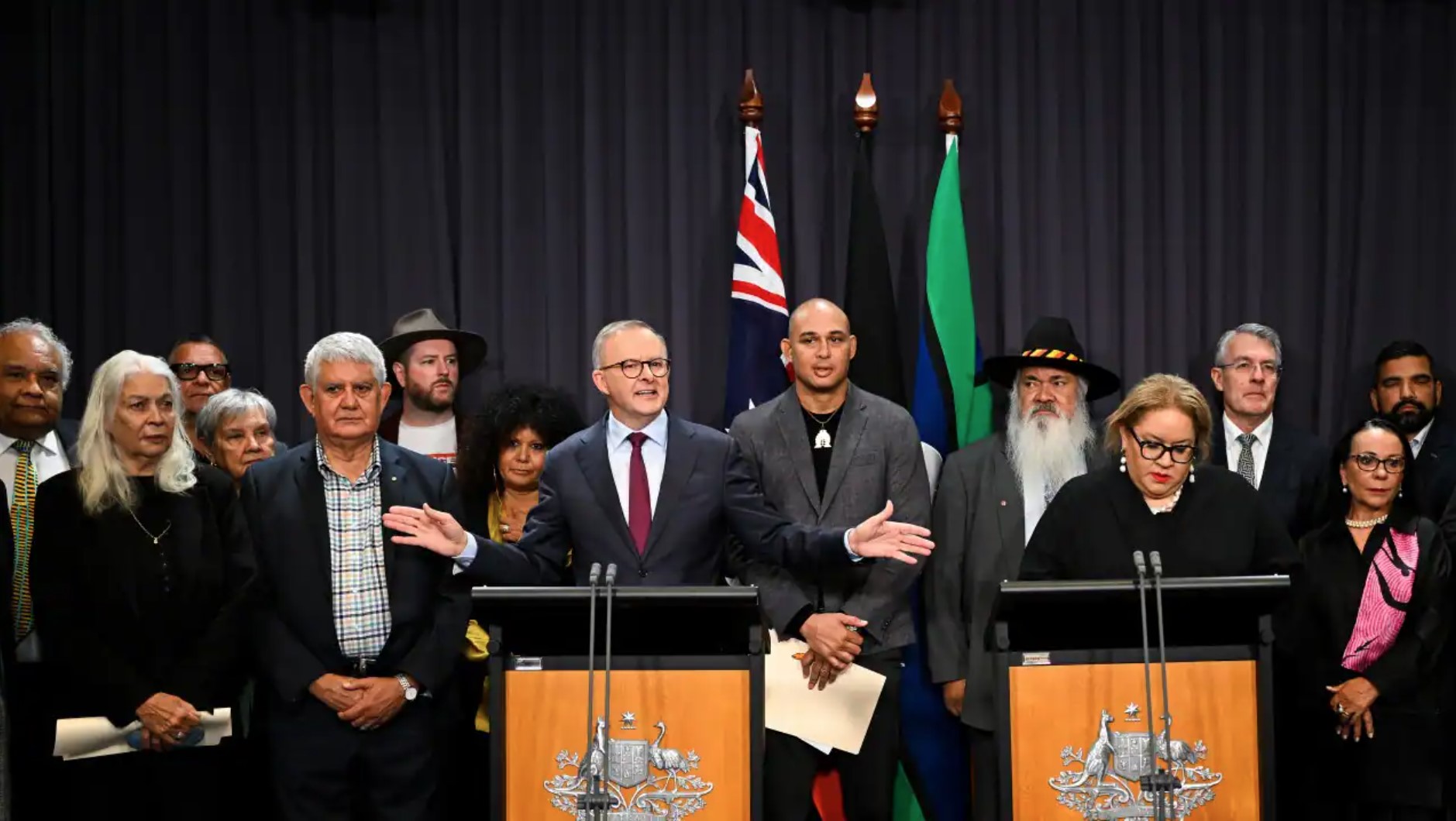ABORIGINAL RECOGNITION
The ongoing, persistent marketing efforts of the well-funded “Yes23” campaign revolve around a repetitive statement:
“Australia’s Constitution is 122 years old and still doesn’t recognize indigenous Australians.”
This campaign aims to create the false impression that there has been an inadvertent or deliberate omission of Aboriginals from the Constitution. Such a claim is untrue, misleading, and deceptive, as its purpose is to make viewers believe that this alleged omission is a “mistake” requiring correction.
The preamble of Australia’s Constitution clearly states:
“WHEREAS the people of New South Wales, Victoria, South Australia, Queensland, and Tasmania, humbly relying on the blessing of Almighty God, have agreed to unite in one indissoluble Federal Commonwealth under the Crown of the United Kingdom of Great Britain and Ireland, and under the Constitution hereby established…”
Importantly, it explicitly states “the people”—referring to all individuals residing in the Colonies.
The primary purpose of the Constitution is to outline the operational relationships between the states and the newly formed Commonwealth of Australia. It was never intended to “recognize” any specific group of people. In fact, the Constitution does not even recognise the British people that were about to create the nation of Australia. The Constitution consistently uses the term “the people” to encompass all Australians, including Aborigines, immigrants, and native-born individuals.
The Constitution excluded Aboriginals from two clauses for valid reasons, which were later addressed through the 1967 Referendum. These clauses were:
-
Section 51(26) excluded the Commonwealth from enacting laws specifically for Aboriginals, as the responsibility for creating such laws was deemed to lie with the states;
-
Section 127 stated that Aboriginals would not be included in the Census count.
These exclusions were not indicative of a deliberate attempt to exclude or omit Aboriginals from the Constitution but rather reflected the prevailing perspective of the time regarding the distribution of powers between the Commonwealth and the states, as well as the prevailing understanding of census practices.
It is crucial to approach discussions surrounding the Constitution and Aboriginal recognition with accurate information and avoid propagating misleading narratives that distort the true intentions and content of the document.
It is worth noting that each State has included recognition of Aboriginals in the preamble of their respective constitutions. However, this recognition has not resulted in significant changes or improvements in the lives of Aboriginals. Furthermore, the majority of people are unaware of the presence or content of these recognitions.
To mitigate potential legal disputes concerning Aboriginal affairs, most states have included disclaimers to disavow any legal action based on the recognition statement. Currently, there is no such disclaimer proposed for the Voice in our Constitution.
The inclusion of Aboriginal recognition in the various State’s constitutions was not subject to the consent of the people of the states or a consideration of whether it was fair to exclude other racial groups.
In 1999, there was a proposed change to the Commonwealth’s preamble that would have recognized Aboriginals as the First Peoples. However, this proposal faced strong opposition from the Labor Party, as it was considered divisive and could create legal uncertainty. Ultimately, the Australian public rejected the proposed change.
Therefore, proclaiming that the Constitution doesn’t recognize Indigenous Australians is, at the very least, disingenuous and more likely deceitful. Aboriginal Australians are citizens, like all of us, and although no specific race or group is individually identified, all citizens are recognized in our Constitution.

